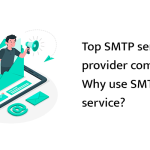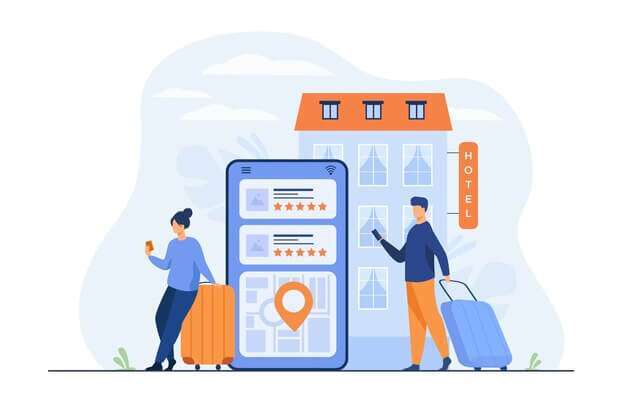When the COVID-19 pandemic had stuck in the world, the hotel technology industry came to a standstill. Since everyone was locked inside their homes, hotels started finding it tough to keep their business afloat.
Almost about two years into the pandemic and the situation has started getting better. Though the virus is still out there, the hotel industry has started leveraging technology for better and safer operations.
From switching to smart menus to contactless hotel check-ins, there’s a whole technological revolution in the industry.
Popular and upcoming hotel technologies for 2022
You may wonder—what technologies are exactly picking up in the hotels? Well, many of them. You can check them out here:
1. Safety measuring software
With hotels opening up, ensuring safety measures for both staff and guests has become important. After all, that’s important to ensure safe and healthy business premises.
And getting people to mask up is one of the first steps towards it. To make it easier for hotels to check if people entering the premises are wearing masks, many are using facial recognition systems.
They notify the staff when someone is seen without a mask. When that happens, the guest or staff member under consideration can be requested to do the needful.
In fact, here’s one more common technological use case that you may have heard of. It is—a thermal-based camera. Hotels have started installing them at various locations within the premises. It ensures regular temperature checks for everyone with no scope for any negligence.
2. Robots and drones
With the virulence of the pandemic, everyone started looking for ways to minimize unnecessary human-to-human interactions.
This has made many hotels resort to robots for repetitive tasks where human interaction isn’t really needed.
Hence, robotics has lately been gaining a lot of momentum in the hotel industry. Japan’s Henn-Na-Hotel is the leading example of the same.
Henn-Na is an all-robot-staffed hotel. Here, robots are the ones who greet you, help you with the information on food and events, and even deliver snacks to the rooms. What’s even more interesting is—these robots do it via drones.
That surely sounds like a next-gen hotel with an all-new level of hospitality for guests, right?
3. Affordable and effective contactless technologies
It has become a necessity for hotels to adhere to strict social distancing norms. Along with this, they need to ensure their guests’ safety without compromising their experience.
To do it, hotels have started adopting contactless technologies such as RFID, NFC tags, AI-powered devices, and QR Codes. Unlike robots, they don’t really weigh very heavy on your pockets. At the same time, they make various hotel operations absolutely contactless.
And the best part is these technologies can be easily integrated with mobile apps. No need for you to fret over technologies that need dedicated set-ups to function.
If you’re wondering what tasks can these technologies help with, here are some of them:
- Contactless check-in to the hotel premises
- Offering digital menus to the guests
- Collecting guest reviews and feedback with QR Code-based forms
- Accepting digital payments without any hassle
4. Ticketing Software to delight the guests
The use of ticketing tools is not new to the hotel industry. Some players were using it even before COVID was a thing. However, the pandemic has reinforced their need at the workplace.
From receiving tickets on housekeeping and reception inquiries to taking orders for food and other services in real-time, ticketing tools go a long way.
Once a ticket is received, it can be assigned to an appropriate staff member to start working immediately.
In addition, the latest ticketing software is going a step ahead to allow employees to communicate with each other. This facilitates better teamwork and customer service while ensuring contactless operations for the guests.
5. IoT for smoother operations
IoT (Internet of Things) has been around for quite some time now. It is basically the network of physical objects embedded with sensors, software, and other technologies. And needless to say, it’s one of the most sought-after technologies among the youth.
So, many industries, including hospitality, are leveraging it for various use cases. For example:
- IoT is replacing the room keys or cards for their rooms. It sends digital or electronic key cards directly to guests’ smartphones. They can then unlock the room without the need for a separate key. Hence, no need for them to worry about carrying their keys all the time or even losing them
- IoT is also helping staff stay abreast with up-to-the-second information about hotel operations. These include the status of different appliances, warning alerts, etc. It, in fact, goes a step ahead to predict the repair and maintenance cycles as well
Hence, the necessary repairs and replacements can be done before an appliance or a system fully stops working. Isn’t that amazing?
- Hotel giants such as Best Western, Marriott, and Wynn have adopted smart devices such as Amazon Alexa. They help guests request room service, book a table at the hotel cafe, or report issues with the room by simply speaking to a gadget (for example, Amazon Echo Dot)
Enhanced customer service driven by technology: the conclusion
No matter how much the time or context changes, one thing will always remain constant for the hotel industry—customer delight.
While human-driven operations were dominant in ensuring that before the pandemic, technology is assisting humans today!
Any technology in the hotel space serves one purpose—making the premises safe for all. That’s the most sought-after quality that guests now look for while picking their stay.
So here’s the thing—while hotel technology can help you make your operations better and safer, that’s not where it ends. Make sure you go a step further to let your potential guests know about it. That means you must gear up your marketing communications to let customers know that you care! And nothing beats emphasizing your technological adoptions in doing that. That means the best of both worlds for you!
Read More:
How Do Dental Curettes Contribute Towards Better Oral Health?
What are the Best Ways of Marketing for a Software Company?
9 Undeniable Reasons Why You Need Content Writing Service











